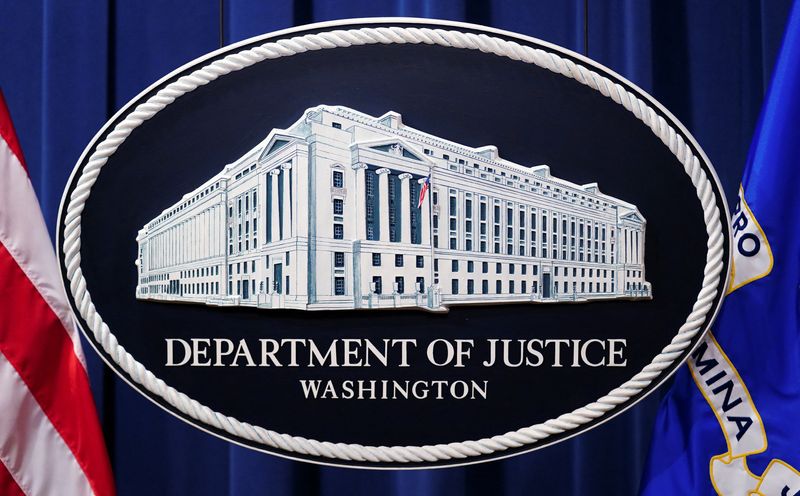By Jonathan Stempel
NEW YORK (Reuters) -The U.S. government said President Donald Trump’s hush money criminal conviction in New York should be thrown out, because it was based on improper evidence and a legal theory preempted by federal law.
In a Friday filing with a state appeals court in Manhattan, the Department of Justice adopted Trump’s view that he deserved immunity for official acts he took as president, and introducing evidence of such acts at trial “can never be harmless.”
It also said federal law barred jurors from considering whether Trump violated federal election law by concealing a hush money payment to porn star Stormy Daniels, the disclosure of which could have disrupted his 2016 presidential campaign.
The Justice Department made its arguments in a friend-of-the-court brief supporting Trump’s bid to overturn his May 2024 conviction on 34 felony counts of falsifying business records. Courts need not take such briefs into account when ruling.
A spokeswoman for Manhattan District Attorney Alvin Bragg, whose office won the conviction, declined to comment.
JUSTICE DEPARTMENT CITES LANDMARK SUPREME COURT CASE
Trump and the Justice Department cited the U.S. Supreme Court’s landmark July 2024 decision shielding presidents from prosecution over official acts, and barring prosecutors from discussing such acts in criminal cases about private behavior.
The Justice Department said this means Trump’s trial judge should not have let jurors hear about Trump’s alleged discussions with Attorney General Jeff Sessions about a potential federal election probe, and White House Communications Director Hope Hicks about dealing with negative press.
“To allow any of the Nation’s more than 2,300 prosecutors’ offices to indict a former President for his official conduct would risk chilling every President in the vigorous discharge of the duties of his office,” the Justice Department said.
The department acknowledged that Trump’s six-week trial predated the Supreme Court decision, and trial judge Juan Merchan could not have applied its findings.
TRUMP RECEIVED UNCONDITIONAL DISCHARGE
On Thursday, a federal appeals court ordered a Manhattan district judge to reconsider Trump’s request to move his conviction to federal court from state court.
Such a move could speed up Trump’s potential exoneration. The state appeals process could take a couple of years.
Merchan sentenced Trump on January 10 to an unconditional discharge, a rare sentence he said would help minimize disruption and ensure “finality” as Trump prepared to begin his second White House term 10 days later.
(Reporting by Jonathan Stempel in New York; Editing by Cynthia Osterman)

